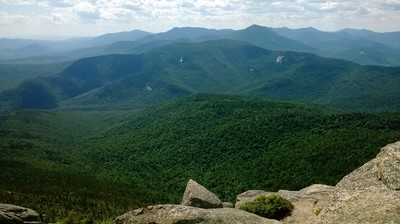|
These are only a few of the books I have read in my (way out) life:
The Story Of Psychology by Morton Hunt goes through the history of different approaches to studying the mind from Plato to phrenology to gestaltism. Sophie’s World by Jostein Gaarder is an overview of the works of all the major philosophers including Socrates, Berkeley, and Kant. It is told in a fiction thriller format wherein Sophie’s teacher explains philosophy to her while mysterious things happen. Mere Christianity by C. S. Lewis touches upon Lewis’s theories of the nature of the trinity and other interesting things. The Evolution Of God by Robert Wright first goes through (his contested version of) the history of religious thoughts and how the human conception of God has changed over time. He then proposes the true existence of an impersonal force for moral development as an emergent phenomenon of globalism that he submits as a compromise between atheism and theism. How To Lie With Statistics by Darrell Huff details how salesmen, politicians, and others can present truthful data in very misleading ways. For example, some use correlation to imply causation. I read this when I was very young and I can’t stop seeing examples of this almost daily. How We Know What Isn’t So by Thomas Gilovich goes beyond misleading presentations of data and touches upon psychological biases common to most humans. The Great Political Theories (volumes one and two) by Michael Curtis contains excerpts and summaries of every major political theory and manifesto, such as Plato’s Republic and Hitler’s Mein Kampf. Taking The Quantum Leap by Fred Alan Wolf is a simply-worded, illustrated introduction to quantum mechanics. No They Can’t by John Stossel puts in an eloquent, easy-to-grasp, and fact-supported way the libertarian worldview. The Metaphysical Club by Louis Menand focuses on the lives and theories of (mostly) American philosophers during the nineteenth century and on how much of it was designed to reduce conflict in the wake of the civil war. It also tangentially touches on some interesting different approaches to doing science. On Second Thought by Wray Herbert details several cognition “shortcuts” human brains make in making perceptions. What is interesting is that not only are those afraid of heights more careful around heights, but they actually perceive those heights as higher than others do. Culture Matters edited by Lawrence E. Harrison and Samuel P. Huntington is a collection of essays on how cultural values affect economic development in different societies. Understanding Media by Marshall McLuhan is about how the types of media common in a society affect the “sense ratios” of the people and therefore their approach to life. For example some people care nothing about hearing swear words spoken verbally, but put them into print and they freak out. Other people are the opposite. Create Your Own Economy by Tyler Cowen touches on many seemingly unrelated subjects, but what I got out of it is how we are all partly autistic and the internet is making us more so by changing our “sense ratios” – though he does not use this term. On Being Certain by Robert Burton is very pessimistic of intuition, presenting cases where the brain can be tricked. Blink by Malcolm Gladwell is very optimistic of intuition, presenting cases where the subconscious makes split-second evaluations that later turn out to be right, even when we never know why. The Physics Of Star Trek by Lawrence M. Krauss is a great introduction to physics. It explains wormholes, warp drive, and why the “transporter” will probably always be impossible. Jesus Among Other Gods by Ravi Zacharias details several ways that Jesus was completely unique as the founder of a religion. Darwin’s Black Box by Michael Behe details several examples of “irreducible complexities” found in Earth life that could not possibly have evolved gradually without killing the organism and therefore must have been introduced fully-formed by an “intelligent designer.” The Case For Christ by Lee Strobel details the corroborating and other evidence to support the accounts of the gospels. Challenging The Verdict by Earl Doherty picks apart the arguments made in The Case For Christ and submits alternative theories and also claims Jesus never existed. Not A Conspiracy Theory by Donald Gutstein is not worth much except as a list of who gives the money to promote libertarian or neoconservative causes. He gives progressives a free pass. The Political Brain by Drew Westen misleadingly supports the case that liberals appeal to the intellect and conservatives the emotions while suggesting that liberals will do better politically if they refuse to have a dialogue and instead resort to accusing conservatives of having secret, nasty motives. Wrongly Convicted by Saundra Westervelt and John Humphrys gives specific cases where justice went awry and suggests numerous measures that can be made for reform. Soft Power by Joseph S. Nye Jr. explains the value for nations of cultivating a positive image in the world. 1421 by Gavin Menzies cites overwhelming evidence that the Chinese visited the coasts of North America and South America long before the Portuguese and Spanish. If lightning had not struck the Chinese capitol and started a fire two years later, we would all be speaking Chinese today. When In The Course Of Human Events by Charles Adams makes the case that the Confederacy was (mostly) in the right and the Union was waaaaaay out of line. It also makes the case that the civil war was about much more than slavery and this has been ignored or even covered up ever since. How The Irish Saved Civilization by Thomas Cahill chronicles the fall of Rome and how literacy and learning was kept alive only in monasteries, many of them founded by Irish missionaries across Europe. Union, Nation, Or Empire by David C. Hendrickson is really good. The subtitle says it all: The American Debate Over Foreign Relations 1789-1941. Attitudes towards American relations with the world are compared and contrasted with attitudes towards relations between the states. The author makes the case that the USA should lead the world in joining together since we have had more practice in keeping multiple states in harmony and have learned from our mistakes. Mapping Human History by Steve Olson shows how closely related the human species is and makes the case that “race” is very nearly nonexistent. It also covers prehistoric migrations. Reinventing Knowledge by Ian F. McNeely and Lisa Wolverton details the different institutions and artifacts that information has been stored on and disseminated through to the next generation in different cultures and through history, such as how the first colleges and museums arose and evolved.
0 Comments
Leave a Reply. |
AuthorMy name is Dan. I am an author, artist, explorer, and contemplator of subjects large and small. Archives
February 2023
Categories
All
|



 RSS Feed
RSS Feed